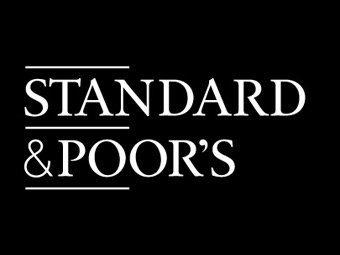

Standard & Poor's warning that the U.S. is at risk of losing its AAA rating was fully predictable. At about $ 12 trillion, the country's borrowing is not sustainable. The reason why the U.S. has been able survive while borrowing at this rate for so long is the historically low interest rates that we currently enjoy in the absence of inflationary risk. Should interest rates across the board increase by just 1% over the next 12 months, the additional cost would amount to $ 120 billion per year the situation quickly shifts from bearable to unbearable.
In order to avoid the financial consequences and the humiliation of such a downgrade, the Administration needs to give clear signals that it considers the remediation as a priority and that it tables a credible plan to reduce its indebtedness and fiscal spending. President Obama was clear during his speech of the State of the Union that further spending will not occur. Will this be enough?
Considering the increase of the "insurance premium" that the Credit Default Swap market requires to cover the sovereign risk of the U.S., there are some anticipations that such a risk might worsen before it gets better. We already know that 2010 will not be good, but all eyes are now on 2011 and the possibility that our public debt and budget deficit might decrease. It is quite possible that economic growth will help and tax collection will increase, but with a substantial amount of Net Operating Losses in the balance sheet of companies over the past two years, there is no certainty. Spending will therefore need to be reduced.
Interestingly Standard & Poor's points to another risk. The U.S. depends on foreign lenders, mostly China, Japan and the European Union for about half of its public debt. There is little risk that foreign lenders will stop lending to the U.S. and the Central banks of these countries will continue to invest in U.S. Treasuries. The size and liquidity of the U.S. market is second to none. But even a 10 percent shift in reserves in favor of the Euro, the Yen and the Sterling would have dramatic consequences on the cost of foreign borrowing by the United States.
The risk is not immediate, but the CDS market is sending us a clear signal: the United States' debt is getting pricier. Decisive action is therefore expected and the best hope will be in the reduction of the expenses related to Iraq and Afghanistan.
Should the downgrading happen, beware the Republicans. Despite the fact that much of the current debt load, including the ongoing costs in Iraq and Afghanistan, was accumulated under their so-called management, they will not hesitate to blame the current administration for their own past excesses. The Obama administration inherited an impossible situation at a time when it needed to cope with the financial crisis and to stimulate the economy.
A downgrade of the AAA rating of the United States would have profound consequences for our international reputation and leadership. We certainly do not need more to worry about.